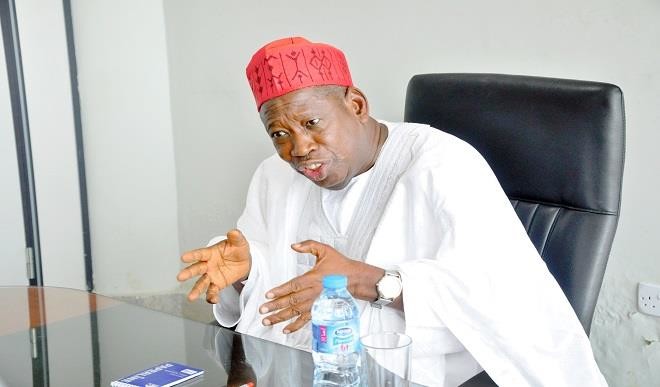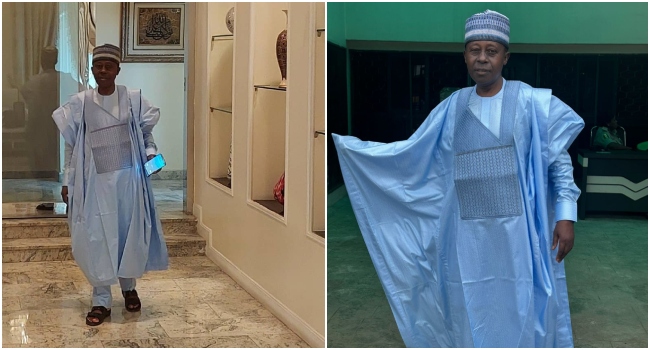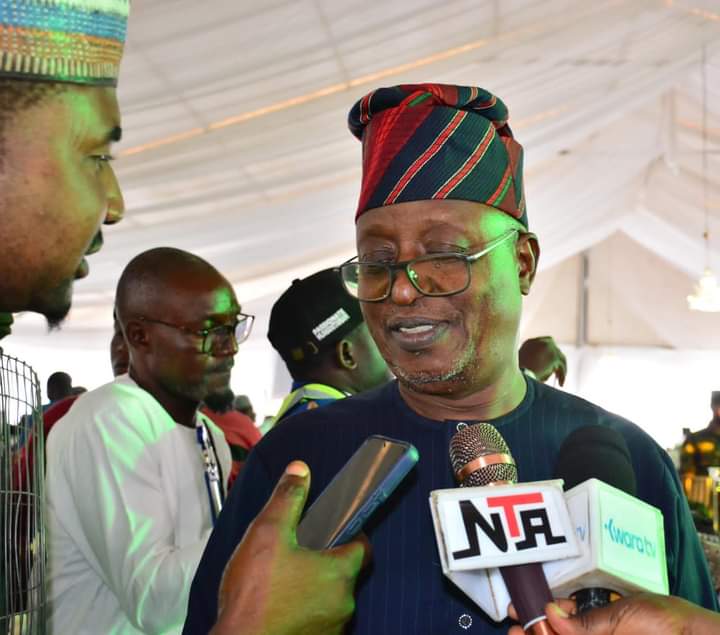- Biafra: Arewa Youths to Lobby N’Assembly on Referendum
There are strong indications that the coalition of northern youths will soon start lobbying members of the National Assembly to include referendum in the ongoing constitution amendments.
The Arewa Youths Consultative Forum’s President, Yerima Shettima, who gave this indication in an interview, said the coalition would not use force to effect the quit notice it gave to the Igbo.
But he expressed confidence that the referendum would not favour the Indigenous People of Biafra’s leader, Mr. Nnamdi Kanu, and other secessionists, saying the people of the zone would reject secession.
The group had a few months ago told the Igbo living in the North to leave the region on or before October 1. It hinged its ultimatum on the secessionist agitation of IPOB.
Following a lot of public outcry and condemnation from eminent Nigerians and organisations, there were reports that the forum would withdraw the quit notice.
But at a press conference in Kano on Thursday, the forum said there was no going back on the quit notice.
Shettima, at the event, had said, “We have not renounced our earlier position on the quit notice to the Igbo.”
He had said that the Northern youths would not use force, but constitutional means to achieve their goal.
He said the forum had written the United Nations to prevail on the Federal Government to opt for referendum.
The referendum, he explained, would enable those who were desirous of leaving the federation to do so without force.
Shettima stated, “We are looking at having a referendum. It is part of our prayers to the United Nations. Our second prayer is for the UN and the international community to prevail on the Nigerian government through the National Assembly to create an exit for those who want to leave.
“We are also planning to lobby members of the National Assembly to formally agree to a referendum on Biafra. We want the Igbo to have the opportunity of voting on this issue.
“We are saying Nigeria cannot sign international treaties and not implement them. We want a constitutional amendment for referendum because it is not currently part of our constitution.”
The youth leader said he was expecting a response to the group’s letter to the United Nations.
According to him, the group will hold consultations across the North on the need for a referendum.
He said, “We are expecting the UN to respond and we would also talk to our lawmakers, but we are in consultation. Nigerians should not panic; we are not a violent organisation.”
He further stated that his group had been holding meetings with stakeholders in the North, adding that the youth coalition had just concluded a parley in Kano after which it would also meet with people in the North-Central and North-East.
He said, “We have made it abundantly clear that we would not enforce anything. We are not the government and we do not have the power to enforce anything, but we are using legal means because the issue is about Nnamdi Kanu who is heaping abuses on our people and undermining the government.
“We are saying the government must rise to the occasion and checkmate the guy. We may review our position after our consultations, but we mean no harm, we won’t harass innocent Nigerians, no. It is not in our power to do so.”
Referendum will not favour Biafra Republic, Kanu
The Arewa youth leader also expressed confidence that a referendum would not favour the Biafra Republic or its promoter, Kanu.
Shettima said Kanu could not speak for Igbo leaders such as Chief Emeka Anyaoku and other intellectuals, noting that the IPOB leader was merely engaging in survival antics.
He said, “The truth is that Biafra cannot succeed even through a referendum. The truth of the matter is that an average Igbo man does not believe in Biafra but rather some few individuals are clamouring for it just to survive.
“When the referendum holds, it would not favour Biafra. It will not favour Kanu. He cannot speak for strong intellectuals like Chief Emeka Anyaoku and other Igbo intellectuals.”
He alleged that Kanu was being sponsored by disgruntled Nigerians in foreign countries seeking political relevance, adding that such people were being deceived by Kanu.
The Arewa youth leader explained that the steps so far taken by his coalition were done to expose the agitation for Biafra as a scam that should not be taken seriously by the international community.
He said, “Most of those funding the Biafra agitations are Nigerians in foreign lands who have lost relevance. They want to come back home. They want to be more relevant because they are not relevant at all.
“Kanu is using their psyche assuring them that there would be a new Republic of Biafra. We are doing what we are doing to expose them to the international community that these guys are just jokers and that they are not speaking for the Igbo.
“The real Igbo who want to stay in Nigeria are more than 80 per cent and he cannot in any way speak for them. Through a referendum, you would get to know that truly, more Igbo believe in Nigeria.”
We are certain of victory –IPOB
Reacting to the development, IPOB said it was certain of victory if there was any referendum on Biafra.
IPOB spokesperson, Mr. Emma Powerful, told one of our correspondents, “My leadership told me not to respond to any statement credited to the Arewa youths but their fathers, that is, the Arewa Elders Forum.
“But you know very well that if they call for a referendum today, we will win.
“We are praying, let them venture to call for a referendum in Biafraland, then you will know that God Almighty has done it for us.
“They don’t know what we are doing and what we are planning to do.”
Ango Abdullahi, Junaid urge FG to invite parties
Speaking on the quit notice, a Northern elder statesman, Prof. Ango Abdullahi, said if the Federal Government invited both Northern and Southern agitating youths and elders to a roundtable, some common grounds in the interest of the country could be gained.
Abdullahi, who is the spokesperson for the Northern Elders Forum, said, “When you want the latest on the quit notice, go to the youth. I am not a youth. My understanding is that I participated in one of the elders’ consultations with the acting president (Prof. Yemi Osinbajo). We were the first group to meet him and he listened to our views. I learnt he met with the other group too.
“The initial idea was that all the groups would be put together for a joint discussion; I think this is what perhaps has not taken place. Perhaps, at that time, when the groups meet, we might be able to extract some common positions which will be communicated to the general public.”
Also, a Second Republic lawmaker and a Northern elder statesman, Dr. Junaid Mohammed, said, “I cannot speak for the youth. But the issue about the Northern and Southern agitators which has refused to go away is an indication that we as Nigerians are not sincere democrats. You cannot build a democracy without having a sincere mind of a democrat. This mind is neither in the North nor in the South.
“We have to be sincere with ourselves and see whether the Nigerian project is an implementable project. We have to see whether we have been fair to our existence as a country and whether any country can survive with this level of continuous agitations.”


 Naira4 weeks ago
Naira4 weeks ago
 News3 weeks ago
News3 weeks ago
 Education4 weeks ago
Education4 weeks ago
 Social Media4 weeks ago
Social Media4 weeks ago
 Economy4 weeks ago
Economy4 weeks ago
 Investment4 weeks ago
Investment4 weeks ago
 Dividends4 weeks ago
Dividends4 weeks ago
 Business3 weeks ago
Business3 weeks ago




























